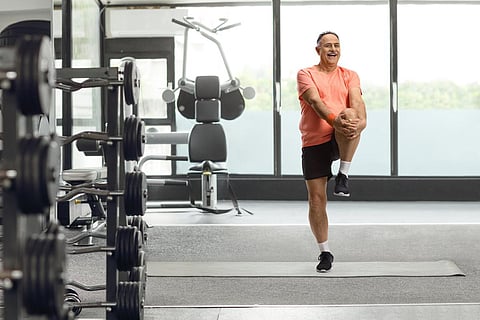WEDNESDAY, Oct. 23, 2024 (HealthDay News) -- Duration of one-legged balance is the most reliable measure of neuromuscular aging for both older men and women, according to a study published online Oct. 23 in PLOS ONE.
Asghar Rezaei, Ph.D., from the Mayo Clinic in Rochester, Minnesota, and colleagues investigated potential age-related declines in gait, balance, and strength, and assessed any relationships between the three parameters, as well as potential differences between women and men. The analysis included 40 healthy individuals older than 50 years.
The researchers found that gait parameters were not significantly affected by age, while knee and grip strength, along with several balance parameters, showed a significant decline with age. While all individuals were able to maintain bipedal balance, their center of pressure movement increased significantly by age. Compared with other factors, unipedal stance time was found to be the most affected by age. Per decade, the duration of unipedal balance declined by −0.62 standard deviations for the nondominant side and −0.53 for the dominant side. Sex differences were only seen for strength parameters, but did not impact the decline in balance parameters.
"The importance of balance, especially in unipedal stance, arises from the fact that it requires multiple sensory inputs and neuromuscular control, in addition to adequate muscle strength," the authors write.
Abstract/Full Text


